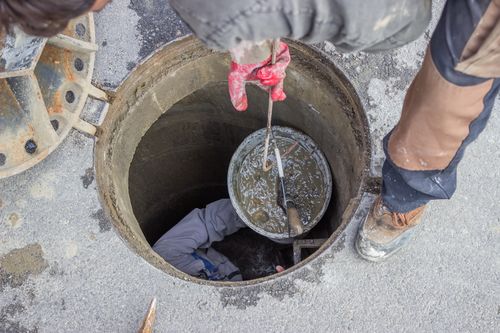Top Class Actions’s website and social media posts use affiliate links. If you make a purchase using such links, we may receive a commission, but it will not result in any additional charges to you. Please review our Affiliate Link Disclosure for more information.

As it turns out, many of these flushable wipes and some other products labeled “flushable” don’t break down after flushing – at least not as readily as their labeling might suggest. Instead, these products remain intact in sewer systems and tend to get tangled up with each other and with other debris, sometimes forming major blockages that cause expensive damage.
Municipal sewer districts have had to spend millions to remedy the problems caused by flushed consumer wipes. In London in July 2013, a mass of wet wipes and other debris grew big enough to make the news and merit its own name. When finally removed, the mass was nicknamed the “fat berg” and weighed in at 15 tons and was comparable in size to a bus.
In Bemus Point, New York, local officials placed strainers in the sewer system to catch offending material in such a way that they would be able to tell which households were flushing unsuitable products into the sewer system. They then sent letters to the implicated residents and in some cases asked them in person to to stop using flushable wipes.
Near Washington, D.C., the Washington Suburban Sanitary Commission has had to spend over $1 million on equipment to shred undisintigrated materials in its sewer system.
The local sewer system in Vancouver, Wash. had to replace three large pumps and eight smaller pumps that kept getting clogged, to the tune of over $1 million.
And in one year, the sanitation district of Orange County, Calif. spent $320,000 on maintenance calls for “de-ragging” at 10 pumping stations.
Septic systems are also vulnerable to problems caused by flushable wipes. Buildup of these materials can clog pipes and pumps, and it can necessitate more frequent servicing of the system.
For a class of products designed and made to be thrown away, disposable wipes are a surprisingly huge business. The market for “pre-moistened” wipes was worth about $4 billion in sales in 2012. About 14 percent of those sales were for tissues labeled as being “flushable.” One expert predicts consumer wipes sales to grow by about six percent per year for the next few years.
Despite these problems, many of these products’ labels still describe the wipes using language like “flushable” or “septic-safe.” Some would argue that statements on labels like “Cleans up to 30% better than toilet paper” imply that the product is a suitable alternative to toilet paper.
Are Flushable Wipes Really Flushable?
Some public utility officials suspect that manufacturers of allegedly flushable wipes are conducting testing of these products that does not accurately reflect the actual conditions inside real sewer systems. One test known as the “slosh box” test requires that a piece of wipe at least one-quarter the size of a full wipe must disintegrate within three hours when submerged in water.
But officials say that in a real sewer system, a flushable wipe can make it to a pump within minutes of being flushed. They say that some sewer systems do not agitate flushable wipes nearly as much as the slosh box test. Still, some manufacturers maintain their testing is adequate and their products labeled “flushable” are adequately designed.
Join a Flushable Wipes Class Action Lawsuit Investigation
If you purchased one of the following flushable wet wipes, you may qualify to join a free class action lawsuit investigation:
- Babyganics® flushable wipes
- Charmin Freshmates
- CVS flushable wipes
- Equate® flushable wipes by Wal-Mart
- Kandoo® flushable wipes by Pampers
- up & up® flushable wipes by Target
- Walgreens flushable wipes
- Other flushable wipe products
ATTORNEY ADVERTISING
Top Class Actions is a Proud Member of the American Bar Association
LEGAL INFORMATION IS NOT LEGAL ADVICE
Top Class Actions Legal Statement
©2008 – 2024 Top Class Actions® LLC
Various Trademarks held by their respective owners
This website is not intended for viewing or usage by European Union citizens.














